Environmental Stewardship
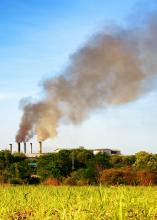
"The Clean Power Plan is a great step forward for our country in taking climate change seriously. It’s clear that President Obama cares about the legacy he leaves to today and into future generations. While there is a lot more that can and should be done by this Administration and by Congress, President Obama deserves our appreciation for embracing the common good and taking such a big step to preserve the earth for our grandchildren’s grandchildren."

About 30 global religious leaders working in their churches and organizations on environmental justice and advocacy for climate change met last month for the World Council of Church’s (WCC) Working Group on Climate Change in Wuppertal, Germany.
This group tackled the urgent issue of climate justice — as there are environmental problems caused by rich nations that affect others. This includes, for example, the great Pacific garbage vortex and depletion by U.S., Japanese, and Norwegian fishing of species, such as cod, on which smaller countries depend for sustenance, creating conditions that affect vulnerable communities around the globe. Climate change is affecting those in Africa as it dries up their land and enlarges the size of the Sahara desert. It affects Asia as huge storms flood broad areas of coastline, devastating homes and lives. Climate change is affecting the most vulnerable populations, which live near vulnerable croplands and shorelines and depend on farming and fishing for their livelihood. Climate change creates weather that takes lives and destroys communities.
Climate change workers realize that those who have contributed the least to CO2 emissions are (and will be) suffering the worst consequences.
The U.S. Environmental Protection Agency just released its new plan to cut carbon pollution from power plants, the first policy of its kind. This plan will cut carbon dioxide pollution from existing fossil fuel power plants 30 percent below 2005 levels by the year 2030. EPA could have chosen a better benchmark, since we’re already 13 percent below our 2005 pollution levels because of the recession and natural gas. But this plan still carries many benefits: it allows the states flexibility in meeting the 2030 goal, and the reduction in smog is projected to prevent 2,700 to 6,600 premature deaths and 140,000 asthma attacks in children. It also shows the U.S. is finally taking leadership on global warming, which is likely to have an impact on the world stage.
EPA Administrator Gina McCarthy is speaking in a press conference at 10:30 am Eastern Time about details of the new rule; C-SPAN is streaming it live online.
You can find the full rule as well as summaries and analyses here.
To join Sojourners in responding to the rule via public comment, join us HERE.
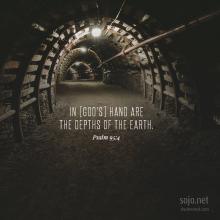
Two weeks ago in Soma, Turkey, a coal mine explosion left 301 people dead. It was the country’s worst mining disaster, but it wasn’t the first — and it wasn’t the last, as multiple fatal accidents have happened in the two weeks since. The last time a mining disaster caught the world’s attention, we watched and waited and prayed during the rescue operation for the miners in Chile.
In Turkey, people protested in the streets of Soma — protested against Soma Mining for letting this happen, against their government for loopholes in safety rules. In response, the police issued a ban on protests and locked the city down. The ruling political party proudly announces that it has inspected that mine 11 times in the past 5 years; Soma Mining denies negligence. And the families of 301 persons mourn their losses.
This isn’t a faraway problem. In the United States, we don’t do as much traditional mining as we used to — instead, we do mountaintop removal. This has a human cost, too, in more insidious ways. The people living in Appalachia have higher rates of respiratory illness, cancer, kidney diseases, skin ailments, and more. And the landscape, which has the fingerprints of God in it, is being blown apart.
Psalm 95:4-5 says:
“In [God’s] hand are the depths of the earth; the heights of the mountains are [God’s] also. The sea is [God’s], for [God] made it, and the dry land, which [God’s] hands have formed.”
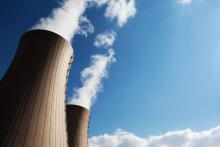
June 2 is going to be a big deal.
Why? Because EPA Administrator Gina McCarthy is about to unveil our biggest climate change policy ever.
It didn’t go through Congress because Congress continues to fail us on our most urgent threat to the planet — even though the majority of Americans in every state agree that climate change is happening and we are the main cause and despite the recent news from the National Climate Assessment that climate change is happening now, and the effects are visible in every single state.
Instead, the Obama Administration is acting on climate change through the Environmental Protection Agency (EPA). The President’s Climate Action Plan has a number of policies within it, including energy efficiency for congregations, and this latest rule will limit carbon pollution from our existing power plants.

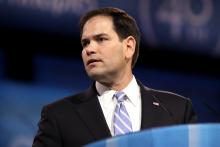
Why is it so difficult for some people to respond to climate change in a thoughtful way? Sen. Marco Rubio says he doesn’t believe human activity is causing changes to the global climate. He told ABC News: “I do not believe that human activity is causing these dramatic changes to our climate the way these scientists are portraying it, and I do not believe that the laws that they propose we pass will do anything about it, except it will destroy our economy.”
But if Sen. Rubio believes that humans aren’t causing climate change, who does he believe is? Does he believe that climate change is natural, perhaps an act of God? The senator is a Christian , and he would be wise to listen to the words of a variety of religious leaders who have spoken about care for creation.



To ignore climate change is to abuse the moral call to care for the environment, and generations to come will suffer.
Some of the most inspiring words in the entire Bible are found in the opening pages of Genesis. Here we are told that humans were created in God’s image and given a divine mandate to care for Creation (Gen. 1:26-31). Our vocation—our calling—is to partner with God in preserving and sustaining the earth with all the creatures and species that God has made. The word used in most translations is “dominion,” and the true meaning is what we would today call “stewardship.”
Unfortunately these passages have often been used and abused to advance countless agendas, often to the great detriment of the Earth and its inhabitants. The deep sense of stewardship implied by and inherent in these verses is ignored and the word “dominion” has been interpreted as domination—and a license to destroy. Such thinking is not just unfaithful to God; it is dangerous to all God’s creation and creatures.
The most recent example of this unfortunate mindset can be seen in the recent comments made by Sen. Marco Rubio (R-FL) denying that human activity contributes to climate change.

Jesus calls us to consume less and to live simply. To “live simply” in itself varies by person, situation, income, and values. While I still fantasize about becoming a new-age Laura Ingles Wilder, building a log cabin and weaving my own clothes, I have accepted that I need to interact with a consumer culture. Consuming is not a bad thing and is a necessary part of life. However, consuming becomes unhealthy when we find identity in our “stuff,” live beyond our means, or hurt others with our purchasing power.
I learned about alternative giving from a flier in my college dorm bathroom. Ithaca College and the surrounding town are notorious for progressive politics, activists, and a thriving farmers market on Cayuga Lake. Progressive politics were a part of the classroom, and I quickly learned about the often unhealthy connections between corporations, government, and the products we use. I remember feeling overwhelmed, powerless, and confused.
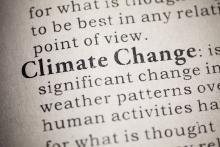
BAN KI MOON has summoned the world's leaders to New York in September to talk about the climate—and in the process he's also summoned all of us who care about the planet's future. We'll be there in record numbers, for the largest demonstrations about global warming yet—and there will be, I think, an unavoidable edge of anger. Because calling these guys "leaders," at least on this issue, is by now a joke.
Take President Barack Obama, for instance. He ran for office promising, in almost biblical terms, that during his administration "the rise of the oceans would begin to slow." Installed in office, he summoned environmentalists to the White House where his staff informed them that he wouldn't be talking about climate change: "Green jobs" tested better in focus groups.
And President Obama was true to his word. He hardly ever talked about climate change: He summoned no political muscle to back attempts at a climate bill in the Senate, and he watched as the Copenhagen climate talks collapsed, the biggest foreign policy failure in many years.
When Obama run for president in 2012, he made it through the whole campaign—during the hottest year in U.S. history—without even mentioning global warming. And while he delayed half of the Keystone pipeline, he "expedited" approval of the southern section, boasting that his administration had built enough new pipelines to wrap around the equator. He has modest decreases in carbon emissions to herald—and massive increases in oil and gas drilling. On his watch the United States will pass Russia and Saudi Arabia as a hydrocarbon source.
WONDERFULLY, WE FIND ourselves very much alive in “a large and beautiful house,” as Cicero called it in his day. We know it was built not only for “the sake of mice and weasels,” or “immortal gods,” but for the entire array of life on Earth.
As we behold the remarkably habitable abode we call Earth, we are left to wonder: What is this grand house in which we live, move, and have our being? What makes it such a habitable abode?
The answer is written elegantly before our eyes in creation itself. And when we join this with reading God’s word, we find the foundation of the answer: “The [geophysical] earth (ge) is the Lord’s and its fullness, the [biosphere] (oikoumene) and everything that lives in it,” as it says in the Septuagint translation of Psalm 24:1.
We discover as grateful dwellers in this most habitable abode that we also are its housekeepers. If we mess it up, it will teach us something about proper housekeeping. And from scripture we learn that we are its Earth-keepers, commissioned, as the Anglican Communion puts it, “to strive to safeguard the integrity of creation and sustain and renew the life of the earth.”
In the beautiful architecture of Earth, we find the foundations of life in the geophysical earth as well as keystone species in its biosphere. In the architecture of our houses and churches, we find structures of our own crafting, such as foundations, cornerstones, columns, arches, domes, and keystones.
Significantly, one of these architectural features appears in the name “Keystone XL,” the proposed tar sands oil pipeline. Architecturally, a keystone locks together two legs of an arch. If completed, Keystone XL would do much the same.
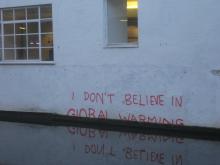
This week the National Climate Assessment Report was released, documenting the disruptions already being experienced due to global warming. President Obama has tried to raise the alarm by talking about the Report with weather reporters in different cities.
What’s amazing to me are not the findings of the report. More flooding, extreme temperatures, drought, severe wildfires — these have been predicted for years. And the crushing effects of global warming around the world are felt most by the poor and marginalized.
On the surface, what happened on Saturday at the nation’s capital was not extraordinary — just another rally for another cause to call the president to add another item to his to-do list. It may have been noteworthy to watch thousands of people from across the country march for climate action and then hold hands in a circle, or to see farmers and tribal leaders lead the crowd on horses, or to hear singer-songwriter Neil Young speak. Still, to a spectator, the Reject & Protect march could have been dismissed as another gathering for hippies and treehuggers or another picture for Instagram.
To overlook the significance of the march, however, would do injustice not only to the events of last week but also to the history surrounding them.
On Tuesday, April 22 (Earth Day), 24 farmers, ranchers, and leaders of indigenous communities rode to Washington, D.C. on horseback to launch the Reject & Protect campaign: a call to President Obama to reject the construction of the Keystone Pipeline (KXL) in order to protect the lands, waters, and communities located along the proposed pipeline.
The arrival of the Cowboy Indian Alliance inaugurated a week of ceremonies, film screenings, meetings, and other events promoting the anti-pipeline movement and climate action.


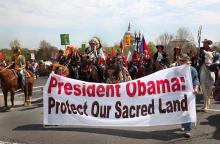
Editor's Note: Today’s #EarthWeek action: Join us for a prayer conference call at 2:30 pm Eastern Time as we hear from the evangelicals standing against the Keystone XL pipeline, and pray a blessing over them and their work. Click here to RSVP.
Maybe I’m a near-sighted, Bible-thumping holy roller, but I can’t see angel wings flapping on oil executives. No doubt some are community pillars. They’re Little League umpires, tithers, and PTA volunteers. They’ve got lovely houses and manicured lawns.
But they’re also flawed like the rest of us, and their professional bias screens out the obvious: The proposed Keystone XL Oil Pipeline would do little good and could wreak enormous harm. I’m compelled to halt my timid thy-will-be-done prayers and join a band of evangelicals boldly pleading for the permit’s denial. We’ve even launched a Facebook page, called “Pray No KXL.”

Director Darren Aronofsky says he is not religious, and that his Russell Crowe blockbuster movie “Noah” is the “least-biblical biblical film ever made.”
But the strong environmental message of his film — which makes Noah a hero as a God-inspired steward of the earth — firmly roots itself in Scripture, Aronofsky told an audience of religious environmentalists on Wednesday. Many of them hope the message of the movie, which has grossed more than $300 million since its release on March 28, spurs more people of faith to work against climate change.
In “Noah,” Aronofsky said, he hoped to capture the beauty of creation, and to dramatize God’s dramatic decision to destroy it because of human sin. Noah, he said, “is saving the animals. He is not looking for innocent [human] babies. It’s about saving the animals.”